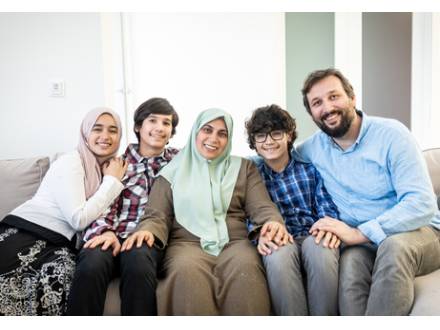Can the Public Charge Rule Affect Family-Based Immigration?
 The US immigration process can be difficult and rife with challenges. One of those challenges is the public charge rule, which makes some immigration candidates ineligible for permanent residency in the United States. The public charge rule has gone through a few changes in recent years, which is why it is important for applicants to understand how it works when applying for a green card or visa.
The US immigration process can be difficult and rife with challenges. One of those challenges is the public charge rule, which makes some immigration candidates ineligible for permanent residency in the United States. The public charge rule has gone through a few changes in recent years, which is why it is important for applicants to understand how it works when applying for a green card or visa.
A common question is whether the public charge rule affects someone who is applying for family-based immigration, meaning that a family member in the US is sponsoring a visa or green card. Some applicants may assume that family sponsorship overcomes the public charge rule and other factors. This article will explore that issue, but remember that your best legal resource is a Texas immigration attorney.
What Is the Public Charge Rule?
The United States government wants to know that those who wish to take up permanent residence in the country are not going to be a strain on the government. Therefore, the public charge rule says that someone who is likely to depend on public benefits is inadmissible. US Citizenship and Immigration Services (USCIS) officials will make this determination by looking to see if the applicant has received cash assistance from the government through the following programs:
- General assistance programs run by state and local authorities to assist with income maintenance
- Supplemental Security Income
- Temporary Assistance for Needy Families (TANF)
Immigration officials will also look at several factors when determining whether the applicant is a public charge:
- The applicant’s age
- The applicant’s family status
- The applicant’s health
- The applicant’s financial status
- The applicant’s assets
- The applicant’s resources
- The applicant’s education and skills
Will My Family’s Use of Public Benefits Count Against Me?
A common misconception is that if a family member is sponsoring your visa or green card and he or she receives cash benefits from the government it can negatively impact you. However, your family’s acceptance of public benefits will not affect your application.
Keep in mind that only cash assistance can qualify you as a public charge. Most other benefits will not affect your application.
What Benefits Are Permissible Under the Public Charge Rule?
You can receive the following public benefits without being considered a public charge:
- Nutrition programs
- Health programs
- Housing programs
- Education and childcare programs
- Earned benefits
- Disaster relief programs
Who Is Immune From the Public Charge Rule?
Applicants who are crime victims or humanitarian immigrants are not subject to the public charge rule. These include:
- Asylum seekers
- Refugees
- Special Immigrant Juveniles
- Those seeking Temporary Protected Status
- Human trafficking victims
- American Indians born in Canada
- Other specialized groups
Contact a Plano, TX Public Charge Attorney
Being deemed a public charge can make you ineligible for a green card or visa. At Law Office of Jae Lee, we will work with you to defend against the charge and provide you with excellent legal services throughout the immigration process. Schedule a free consultation with a Dallas, Texas public charge lawyer by calling 214-295-3014 today.






